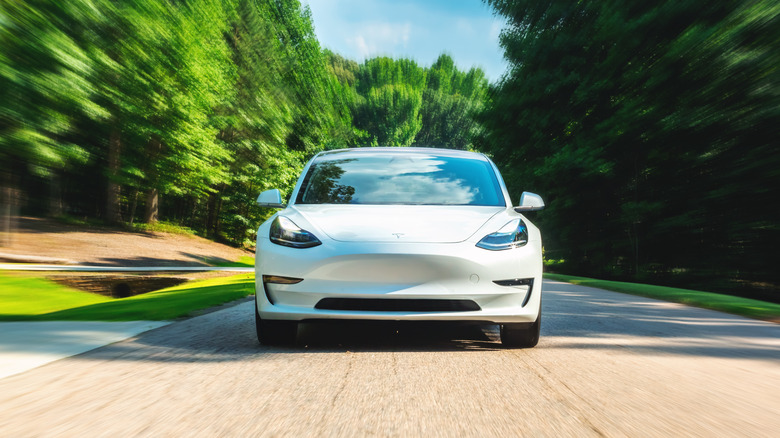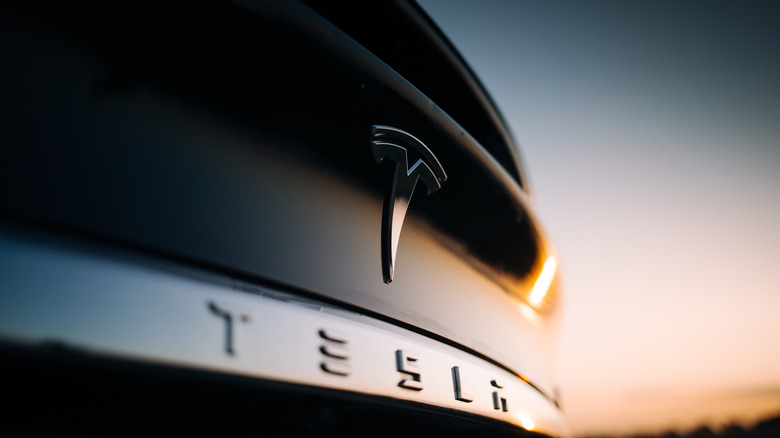The Real Reason Why Teslas Don't Depreciate Like Other EVs
Teslas weren't the first mass market electric cars. The Nissan Leaf, for example, was zipping around years before anyone know what a Model S was. But Tesla is without a doubt, partially responsible for throwing EVs into the public consciousness and popularizing electric vehicles. Plus, attachment to an eccentric billionaire like Elon Musk ensures that the brand will live within the spotlight.
Unlike a lot of other EVs, Tesla enjoys a large fan base. It's not unusual to see dozens (if not hundreds) of social media accounts, subreddits, and Youtube channels dedicated to Tesla. The brand hype is off the charts. That's not to say that other EV brands live in the shadows of Tesla. One of the largest automakers in the world, Ford, just came out with the F-150 Lightning, which offers a look at the future of practical EVs.
Tesla manages to differ itself from other EV brands in another crucial way: its vehicles don't depreciate as fast as other electric cars.
The electric hype train
If you've ever tried selling a laptop or smartphone, you've no doubt seen their value depreciate wildly. It's the same with most pieces of cutting-edge technology. EVs are no different. Tesla, however has managed to mostly escape that curse. According to HotCars, its army of loyal fans drive the car's desirability, which keeps prices from dropping.
Take the humble Chevy Bolt for example. It's a great car and a perfectly reasonable choice for someone wanting an affordable EV. Despite that, the resale value drops the moment you leave the dealership. After two years of ownership, a Bolt's value drops by 16% (via CarEdge). That's not very comforting.
The Leaf is worse. It's well known that the Leaf depreciates in value by the second. Over three years, the value can drop by 19%. A Nissan Leaf is great if you want to keep it forever and drive it until it stops working or until the inevitable heat death of the universe — but you won't want to resell it. Tesla's hype, on the other hand, saves the brand from a similar fate. Over a period of three years, a Tesla Model 3 loses 13% of its value, and the Model S is similar, losing 16%. Though those percentages look close, you'll note the difference in the number of years between value lost is greater for a Tesla than its competitors.

